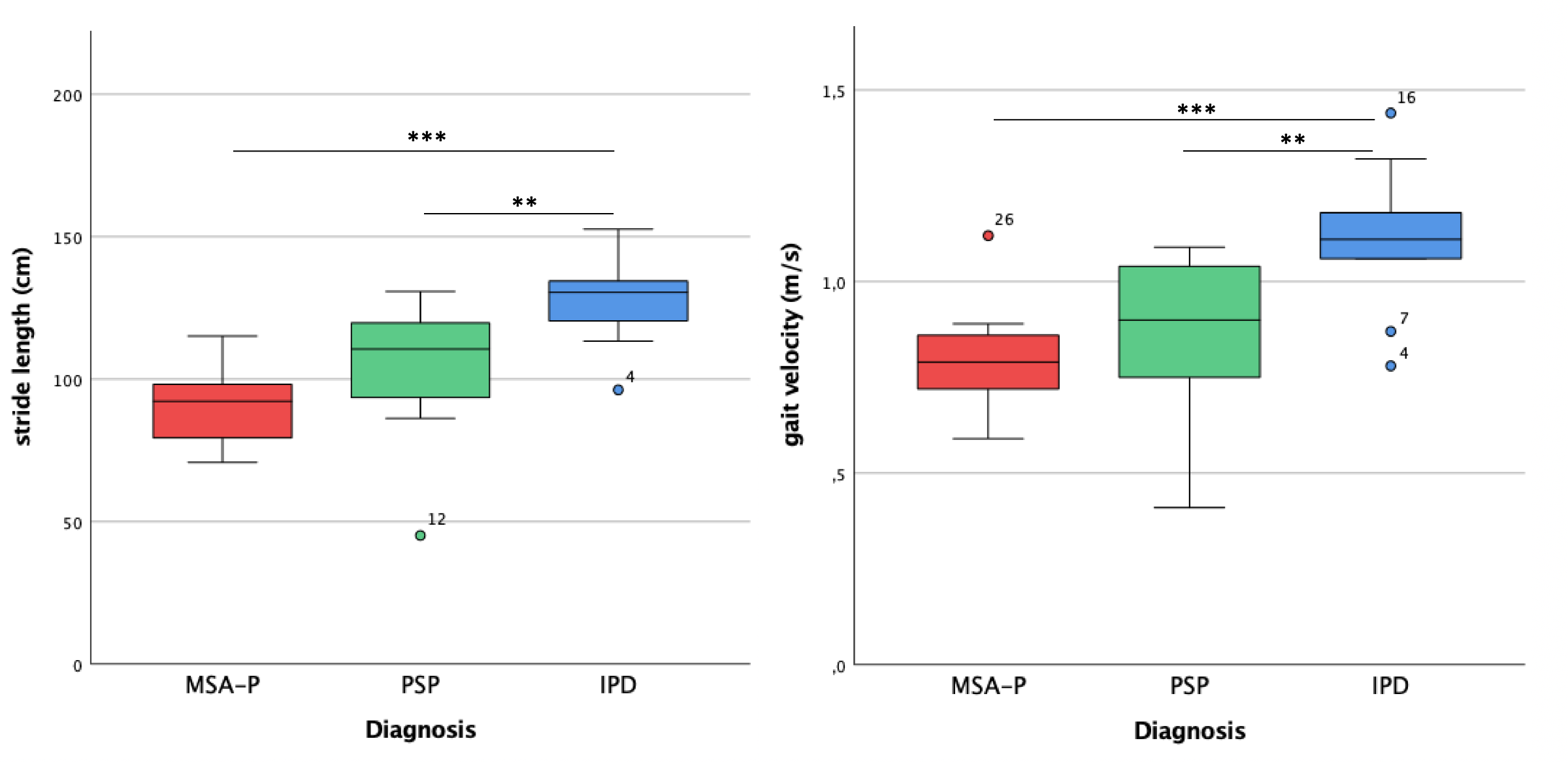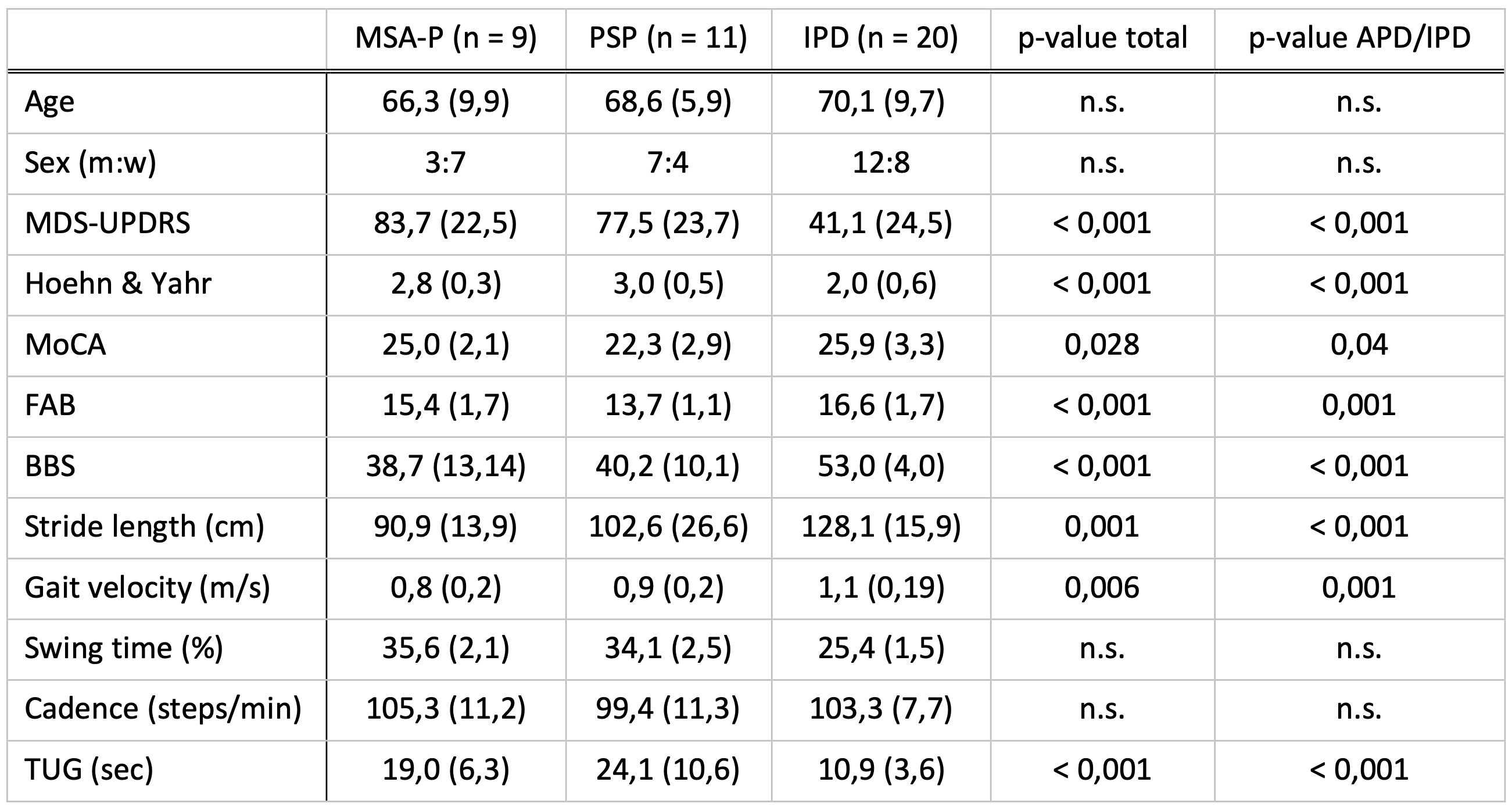Category: Parkinsonism, Atypical: MSA
Objective: To characterize a cohort of patients with multiple system atrophy (MSA) and progressive supranuclear gaze palsy compared to idiopathic Parkinson’s disease (IPD) patients according to gait parameters, physical activity measures and clinical rating scales.
Background: Gait impairment is a pivotal symptom in atypical parkinsonian disorders (APDs) causing reduced mobility and more frequent falls. Past studies demonstrated that stride length and gait velocity can be predictors of an impaired gait. In this analysis, we present a characterization of clinical and gait parameters patients with parkinsonian syndromes as part of a randomized-controlled trial of physiotherapy (NCT04608604).
Method: This is an international trial recruiting patients with MSA-P and PSP compared to IPD. Patients must be on stable medication, be able to tolerate active physiotherapy and have no comorbidities affecting gait All participants undergo clinical rating with the MDS-UPDRS and cognitive assessments with the Montreal Cognitive Assessment (MoCA) and, Frontal assessment battery (FAB). Furthermore, all patients undergo balance assessment with the Berg Balance Scale (BBS) and a standardized gait analysis using sensor-based technology.
Results: So far, we recruited 9 MSA-P, 11 PSP and 20 age and sex matched IPD patients. APD patients were in a more advanced clinical stage as demonstrated by higher total MDS-UPDRS scores and Hoehn & Yahr stages (p < 0.001). In cognition, PSP patients were the most affected among the three groups (p = 0.028 for MoCA and p < 0.001 for FAB). Stride length was significantly shorter (p < 0.001) and gait velocity slower (p = 0.001) in APD patients, with MSA-P patients making the slowest and shortest steps. Balance was more impaired in APD patients as assessed with the BBS and Timed up and go test (TUG) (p < 0.001).
Conclusion: These preliminary baseline data give us an insight into clinical, cognitive, gait and balance differences between parkinsonian syndromes being assessed in a standardized protocol and objective gait analysis. We demonstrate that APD patients are more severely affected in gait and balance than IPD patients with reduced stride length, gait velocity and longer TUG test causing a more unstable gait.
However, APD patients had higher disability and motor impairment as demonstrated in the clinical scores. Recruitment has to be continued to generate more valid data.
To cite this abstract in AMA style:
V. Sidoroff, C. Raccagni, K. Seppi, H. Gassner, J. Winkler, N. Hergenröder-Lenzner, N. Roth, B. Eskofier, S. Buechner, D. Benninger, K. Aminian, G. Wenning. Gait and Balance Characteristics in Atypical Parkinsonian Syndromes [abstract]. Mov Disord. 2022; 37 (suppl 2). https://www.mdsabstracts.org/abstract/gait-and-balance-characteristics-in-atypical-parkinsonian-syndromes/. Accessed January 30, 2026.« Back to 2022 International Congress
MDS Abstracts - https://www.mdsabstracts.org/abstract/gait-and-balance-characteristics-in-atypical-parkinsonian-syndromes/


